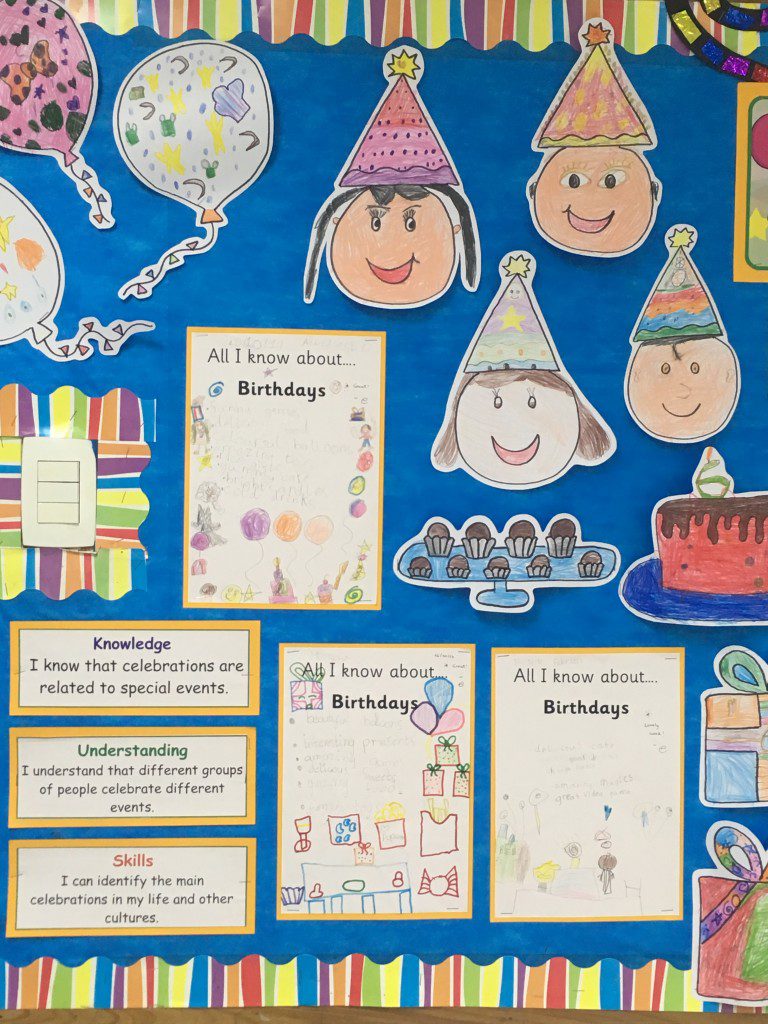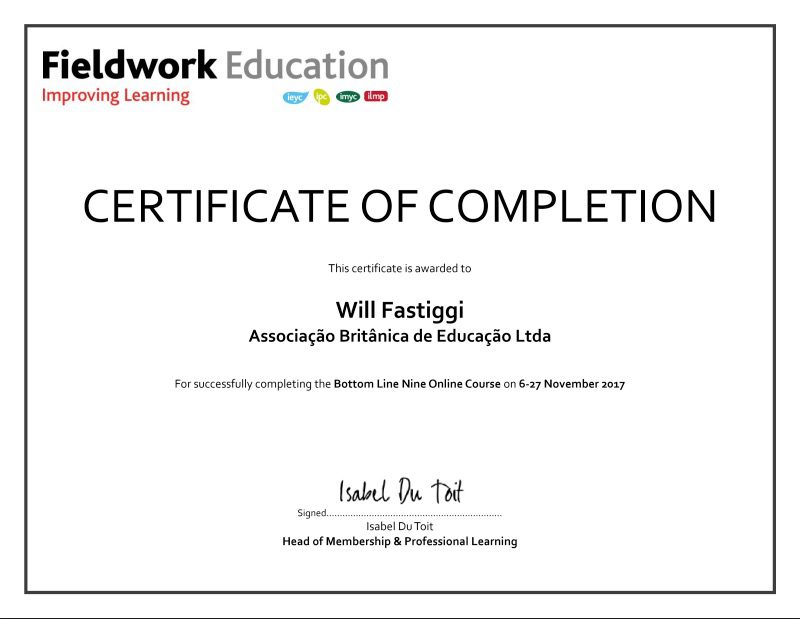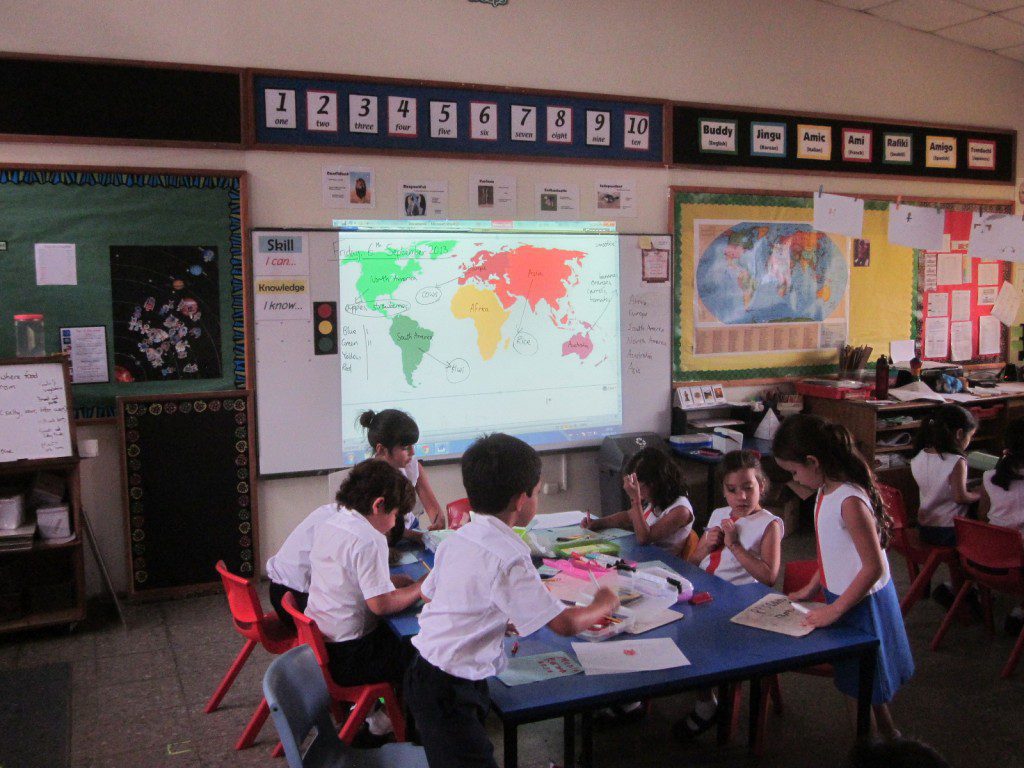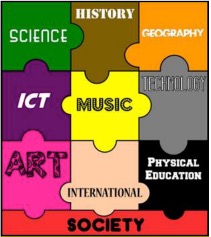Following my recent completion of the IPC course, Bottom Line Nine, I’ve typed up these notes below. Having spent the last six years working for International Primary Curriculum (IPC) schools, this course has helped me reflect on and consolidate my own understanding of the International Primary Curriculum. Hopefully, these notes can also serve as a reference for others about what the IPC is, how it works and what’s involved in the accreditation process.
A Brief History of the IPC
Developed in the late 1990s by the consultancy, Fieldwork Education for Shell’s international schools worldwide, the International Primary Curriculum (IPC) quickly became popular with other schools looking for a curriculum that would be suitable for their diverse cohorts of international children. By using the IPC, international schools around the world have been able to deliver lessons according to a commonly agreed set of learning principles and objectives. There are now almost 2000 IPC schools across 90 countries.
What is the IPC?
Designed for children aged 5 to 11 years old, the IPC takes a thematic approach in which subjects are brought together under one topic. For example, younger students might study topics such as Food, Shopping or Transport, while older students might cover topics such as Celebrations, Climate Control or Space Explores. In total, there are currently about 130 of these topics, also known as ‘learning units’, to choose from – all of which are designed to appeal to children’s interests and help them to learn more about the world around them. Each learning unit then brings in learning goals from other subjects such as literacy, numeracy, science and history. Below is our IPC curriculum map for 2018, which shows all the topics students will study during this coming academic year:
[embeddoc url=”https://technologyforlearners.com/wp-content/uploads/2017/12/IPC-Curriculum-Map_20186.xlsx”]
The concept of theme-based learning is not new, as it first appeared in the 1970s. What the IPC has done, however, is to take this basic concept and modernise it to reflect findings from neuroscientists and other educationalists. An emphasis on how subject disciplines are interdependent allows students to see the connections between subjects and how they are linked to a big idea. In this way, the IPC is intended to provide both depth and breadth to students’ learning.
The ethos of IPC schools as ‘learning-focused’ is underpinned by findings from neuroscience, in terms of the reinforcement of existing neurons and the creation of new neurons. As a result, the IPC views learning as both a process of consolidating existing learning and, secondly, as the development of new learning.
The IPC’s learning outcomes are based on developing knowledge, skills and understanding – the differences between each need to be clearly communicated to the children, as shown in the display below. This is because a key feature of the IPC is its emphasis on the fact that knowledge is only valuable when it used to supplement skills and understanding for any given task.
The IPC reinforces a lifelong view of learning by viewing the development of knowledge, skills and understanding as ongoing throughout an individual’s lifetime. Key questions are used to prompt teachers to reflect, e.g. ‘What kinds of children are we trying to develop, and how can we prepare students for the 21st century?’
How is the IPC implemented?
The learning goals are the foundation on which the International Primary Curriculum is built. They set out clearly what children should learn at school: the big ideas, the qualities we want them to develop, the key skills and the essential knowledge.
The IPC provides students with subject goals, personal learning goals, and uniquely, international learning goals, and these are defined for each age phase:
– Milepost 1 (5 to 7 years)
– Milepost 2 (7 to 9 years)
– Milepost 3 (9 to 11 years)
The mileposts are one of the key organisational features of the IPC. As the Milepost 3 Coordinator, I work specifically with the curriculum and teachers that pertain to this age band. The reason behind organising learning across a two or three-year age span is that if we are to help children to develop skills as well as knowledge and understanding, then we need to recognise that this takes time to learn.
Subject Goals
Subject goals cover the knowledge (facts and information students are expected to learn), skills (practical abilities students need to be able to exhibit) and understanding (deeper awareness of key concepts that develop over time) of children relating to the subjects they are learning. There are subject learning goals for Language Arts, Mathematics, Science, ICT & Computing, Technology, History, Geography, Music, Physical Education, Art and Society.
Personal Goals
Personal goals underpin the individual qualities and dispositions that the IPC believes children will find essential in the 21st century. There are 8 IPC Personal Goals – enquiry, resilience, morality, communication, thoughtfulness, cooperation, respect and adaptability. Opportunities to experience and practice these are built into the learning tasks within each unit of work.
International Learning Goals
From the perspective of the IPC, if we are to be serious about helping our learners to develop a mindset that will allow them to think and act globally, then we as a school need to be specific about what international-mindedness means and how it can be achieved. International learning goals are unique to the IPC and help young children begin the move towards an increasingly sophisticated national, international and intercultural perspective. This move can be thought of as a journey from ‘self’ to ‘other’. Each thematic IPC unit includes an international aspect, to help develop a sense of ‘international mindedness’.
The IPC Learning Process
Though vital, the learning goals only address what children should learn and not how they should learn. This is why there is a clear process of learning developed in the IPC, from Entry Point to Exit Point, which intends for children to become engaged, active and collaborative learners rather than just passive receivers of information. If structured as intended, each unit follows the same process of learning, in order to ensure that children’s learning experiences are as stimulating as possible:
Learning Targets > Entry point > Knowledge Harvest > Explaining the Theme > Research & Recording Tasks > Exit Point
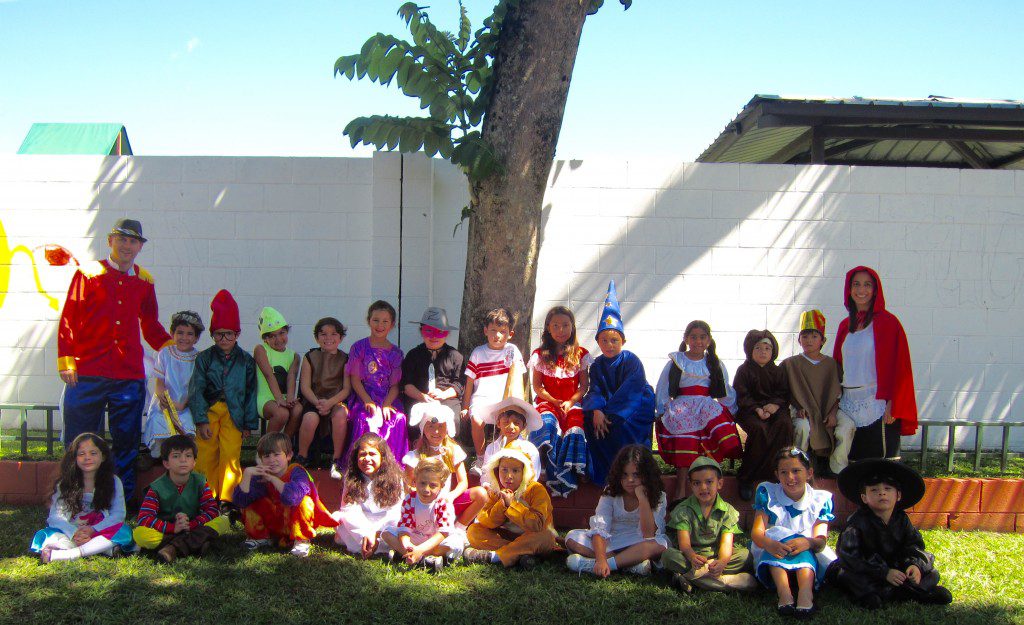
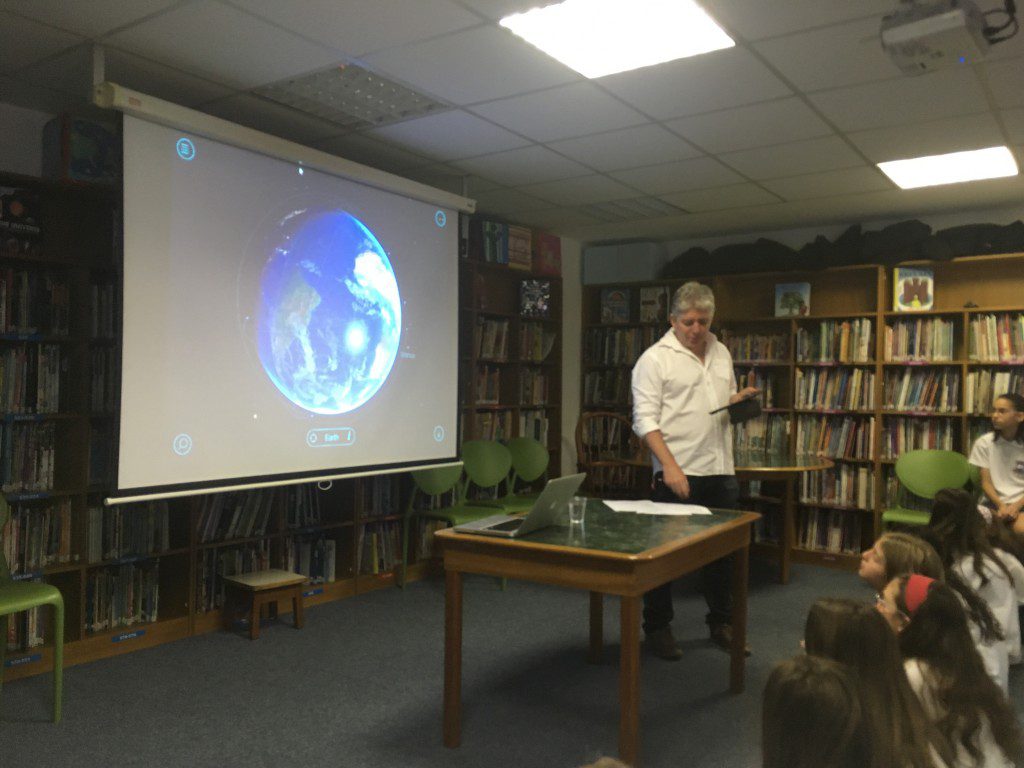
There is another reason why the IPC learning units are structured in this way, and it’s because of key findings from neuroscience research. For example:
■ Neuronal constellations, the existing neuronal clusters in the brain to which new learning is added or existing learning consolidated, (IPC link – The Knowledge Harvest).
■ The behaviour of neurons in the brain and the importance of connections, (IPC link – Explaining The Theme).
■ The way learners take in information, and experience learning differently in a way that is appropriate to them, (IPC link – Researching).
■ Reflecting, or the way the brain processes complex information over time, (IPC link – Reviewing, leading to assessment for learning).
■ The links between stress and learning and the importance of ‘high challenge, low stress’ or ‘relaxed alertness,’ (IPC link – Rigorous learning).
Planning an IPC Learning Unit
Prior to beginning a new learning unit, we have a block planning meeting about a week before. During this meeting we plan collaboratively as a group. To help get us started, I provide a big sheet of paper for brainstorming that has a skeleton mind map with the main objectives/ideas from our IPC unit that we can then add to as a group. This session lasts about 20 to 30-minutes. Then, using Chrome books, we type up the IPC medium term plan together. Designated subject planners are then responsible for making sure that concise weekly plans are typed up for individual subjects.
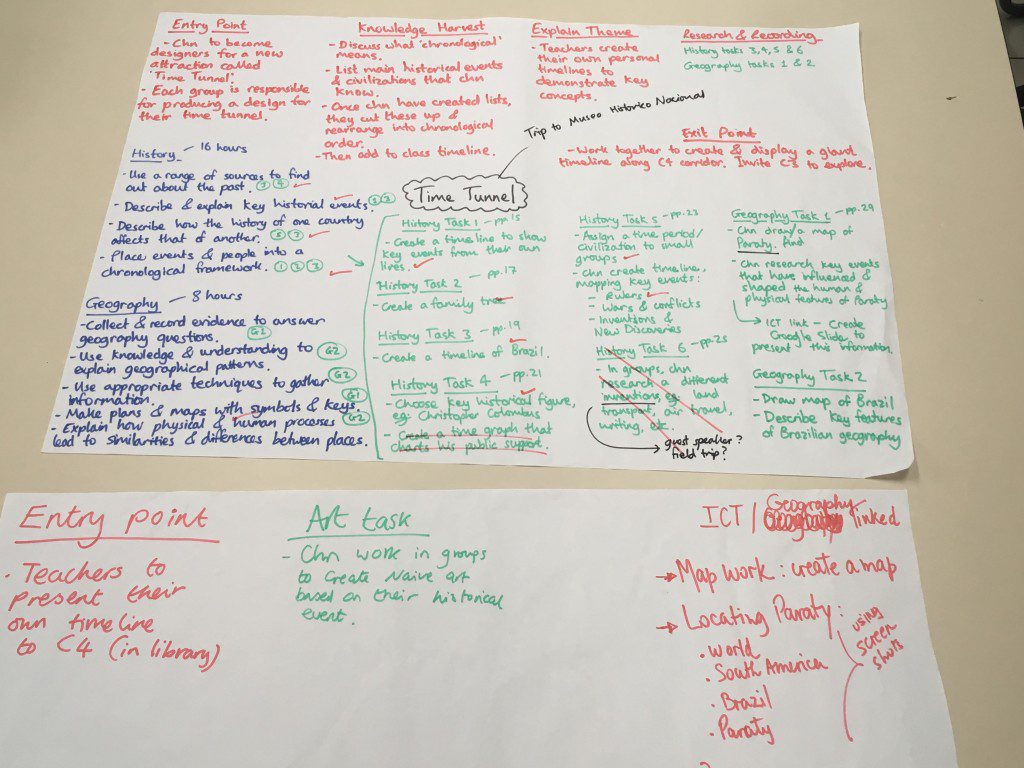
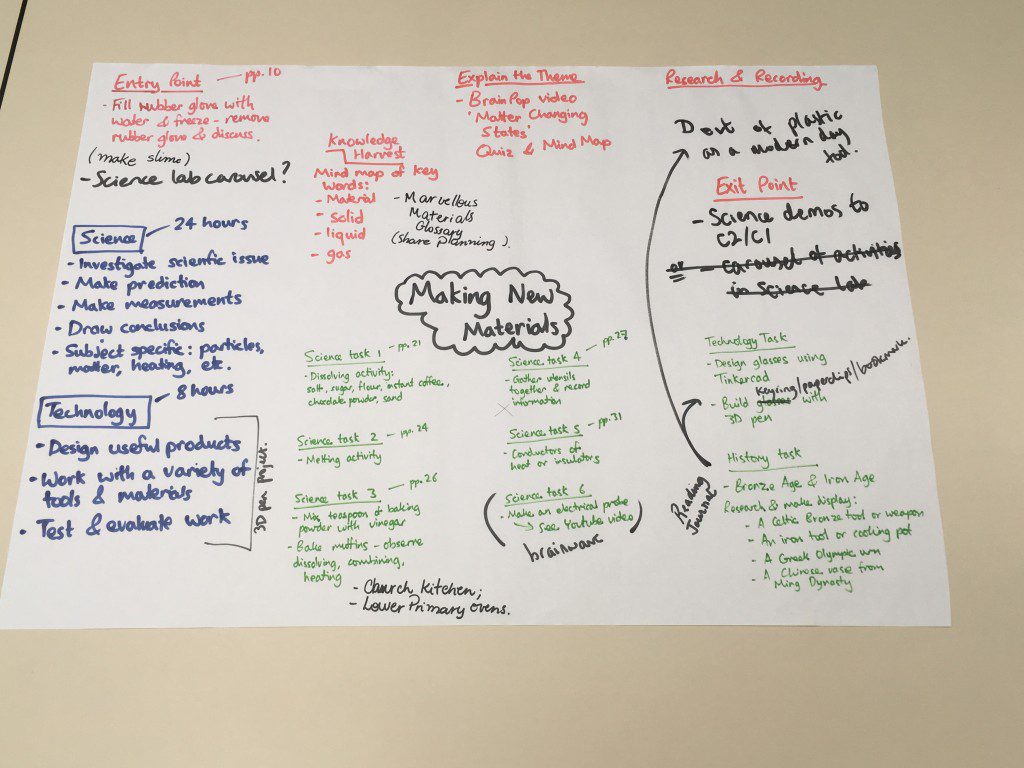
IPC Accreditation
To date, only 17 schools are officially IPC accredited, having improved learning in line with the criteria set out by the IPC. From the Fieldwork Education course that I’ve recently completed, here are my notes on this key criteria – ‘The Bottom Line Nine’:
Criterion 1: A clear focus on improving learning
The most successful schools – the schools in which children learn best academically, personally and internationally – are those that are able to embed the idea of learning deep into everything they do, e.g. assemblies, parent evenings, reports, staff meetings, displays and so on.

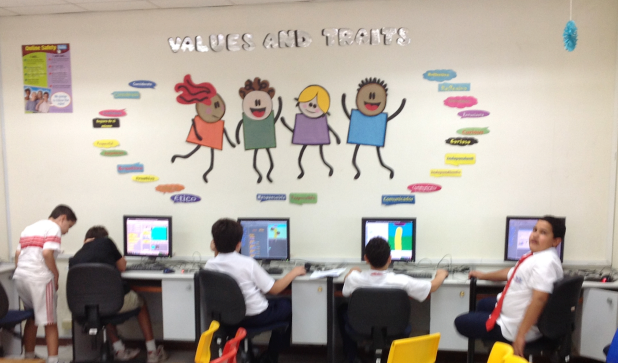
Our school’s shared vision, ‘A caring community, striving for excellence, where every individual matters’, is well embedded in everything we do. For PSHE lessons for example, we emphasise the need to be a ‘caring’ individual, and we reinforce this with the children (and their parents) whenever conflicts arise. Our School Council is used as a vehicle to support our vision, and we have various fundraising initiatives on the go. This month for instance, the student councillors are helping to promote the CELPI food box appeal and Christmas shoe box campaign for families and children living in the nearby favela, Santa Marta.
The floor-based games, such as hopscotch and four squares, which have been painted on our school playground, provide many opportunities for us to share and reinforce our vision of caring children, who look after one another. For example, we have had to look closely at the rules of the games with the children and this has promoted discussion about what it means to be ‘caring’.
Many of our teachers have also received training on the concept of “growth mindset”, so they know how important it is that we’re all seen to be ‘striving for excellence’. As well as modelling this principle for our children by teaching to a high standard, we use our learner profile certificate system and house points to recognise and reward effort. We display and celebrate children’s work throughout the school, both in classrooms and corridors. Our children are thus motivated to continually strive to do their best.
Finally, we have various provisions in place to make sure that no child is left behind, and we live up to our “every indiviual matters” mantra. Weekly TAC (team around the child) meetings are held between senior leaders, coordinators and teachers to ensure that children of concern are supported. As a result, we have pull-out groups for extra support, learning support assistants strategically deployed in classrooms and we’re quick to work with children who have emotional problems. We’re lucky, for example, to have an educational psychologist and mediator that works on our site, who works closely with children requiring emotional support.
I feel we have been successful at living up to our vision and creating a “values-based” culture, as we do our best to nurture a happy community who make the most of the teaching & learning opportunities available. By embedding this vision into teaching and learning opportunities, bringing different sections of the school to work together and ensuring the vision is made explicit through displays, a big impact has been made on learning and a values-based culture has been created. This has taken a lot of time and energy to implement, but I believe the benefits will be felt throughout the wider community for a long time to come.
Ultimately though, the children are the best evidence of whether there is an impact of the IPC’s Personal Goals on learning or not. In the learner’s strand of the rubric, it says that the children should know that the classroom practices used in their class help them develop towards the school’s shared vision, and are aware that these improve their learning. In our case, since caring learners are part of this vision, the children should be aware that the school wants to develop caring learners, ‘why’ the school wants to develop caring learners, and ‘how’ their use of caring learning strategies will help to improve their learning.
Criterion 3: Implementation of classroom practices that help children develop towards the school’s shared vision
Following directly from Criterion 2, the expectation is that schools should have a wide range of classroom practices and approaches to make the realisation of its shared vision a reality.
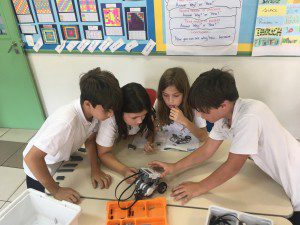
One of our next steps as a school for example, is to have good learning policy in place, which can really help teachers get to grips with ‘how we do things here’. This needs to be part of our induction process.
Criterion 4: International Mindedness
It is a basic principle of the IPC that it is not possible to use the IPC without implementing those elements related to the development of international mindedness.
According to the IPC, internationally-minded students should have:
■ Knowledge and understanding beyond that related to their own nationality
■ An understanding of the independence and interdependence of peoples, countries and cultures
■ Both a national and international perspective
■ The skills and mindset to be global citizens who make an active, positive contribution to society
■ An increasing sense of their own identity alongside developing a sense of others’ and their identities. These characteristics should be reflected in the whole curriculum and in all other aspects of school life.
Criterion 5: The significance and development of knowledge, skills and understanding
The IPC is built on the principle that knowledge, skills and understanding develop together, with each different type of learning including and transcending the other. However, each does have its own distinct characteristics and it can be very powerful ‘to signpost’ to children what kind of learning they are experiencing and what the implications of this are in the classroom.
Based on a number of surveys on the skills required by graduates undertaken by Microsoft, Target Jobs, the BBC, Prospects, NACE and AGR and other organisations, this is a list of skills put together by Fieldwork Education, which were most often deemed important:
- Verbal Communication: Able to express your ideas clearly and confidently in speech
- Teamwork: Work confidently within a group
- Commercial Awareness: Understand the commercial realities affecting the organization
- Analysing & Investigating: Gather information systematically to establish facts & principles. Problem solving.
- Initiative/Self Motivation: Able to act on initiative, identify opportunities & proactive in putting forward ideas & solutions
- Drive: Determination to get things done. Make things happen & constantly looking for better ways of doing things
- Written Communication: Able to express yourself clearly in writing
- Planning & Organising: Able to plan activities & carry them through effectively
- Flexibility: Adapt successfully to changing situations & environments
- Time Management: Manage time effectively, prioritising tasks and able to work to deadlines
All of these skills can be linked in one way or another to the IPC Personal Goals.
Criterion 6: Rigorous children’s learning and teachers’ high expectations of it
The IPC makes clear that there should be rigorous learning experiences, which motivate children to learn more deeply, while also giving them a sense of personal accomplishment when they overcome a learning challenge. For teachers, this means that they should simply bring rigour into classroom.
Criterion 7: Implementation of the learning process of the IPC
It is important that learners do not just experience the structure and process of the IPC (e.g. Entry Point, Knowledge Harvest, etc.), but also that they understand why they are learning in this way. The Brainwave (Art of Learning) units for Mileposts 1, 2 and 3 guide teachers and learners through the philosophy, pedagogy and process of the IPC. In our case, we will begin the academic year with a whole school emphasis on the ‘Art of Learning’, helping students to understand how their brains work in relation to learning.
Criterion 8: Implementation of themes through independent yet interdependent subjects
In the Holiday Show IPC unit for example, multiple perspectives are included such as historical, geographical, scientific, technological and international perspectives and each of these independent subjects are taught and learnt interdependently through this theme. As far as possible, teachers need to ensure that children are introduced to both the separate subjects of the curriculum in a way that also brings the subjects together to develop a broader perspective.
Criterion 9: Assessment that improves learning
The IPC Learning Goals support both ‘assessment for learning’, whether assessing for knowledge, skills or understanding and ‘assessment for reporting’ because we believe both are important.
■ Assessment for ‘learning’ is important because it provides the feedback loop through which children can engage with the information they need to improve their own learning.
■ Assessment for ‘reporting’ is important because learners, teachers, leaders and the community have the right to know how well children are learning compared with other similar children in school or elsewhere, or how well children have learned at the end of the year or a period of time in school. The IPC Learning Goals, distinguish between three types of learning; knowledge, skills and understanding, and believe that all three need to be assessed appropriately in order to get a rounded picture of children’s learning.
■ Knowledge – the ‘know about’ learning goals – can be assessed during, or at the end of each subject, or at the end of the unit.
■ Skills – the ‘be able to’ learning goals – can be observed and assessed whilst the children are actively doing them; before, during or after some subjects in the unit.
■ Understanding – the ‘understand’ learning goals – can be evaluated by a judgement of observations carried out throughout the unit. The IPC Assessment for Learning Programme supports teachers in assessing, and children in self-assessing, their progress with key skills from the IPC Learning Goals. The programme is broken down into three parts:
The IPC has developed a skills-based Assessment for Learning Programme across eight subjects (art, geography, history, ICT, music, PE, science, technology) and international-mindedness. An assessment rubric is used (one for teachers and one for children), which details the performance at three levels: beginning, developing and mastering.
After looking closely at the Bottom Line Nine IPC accreditation criteria, we worked together to write up this action plan for our IPC self-review process:
[embeddoc url=”https://technologyforlearners.com/wp-content/uploads/2017/12/TBS-Botafogo-IPC-Review-and-Action-Plan-2018.xlsx”]

